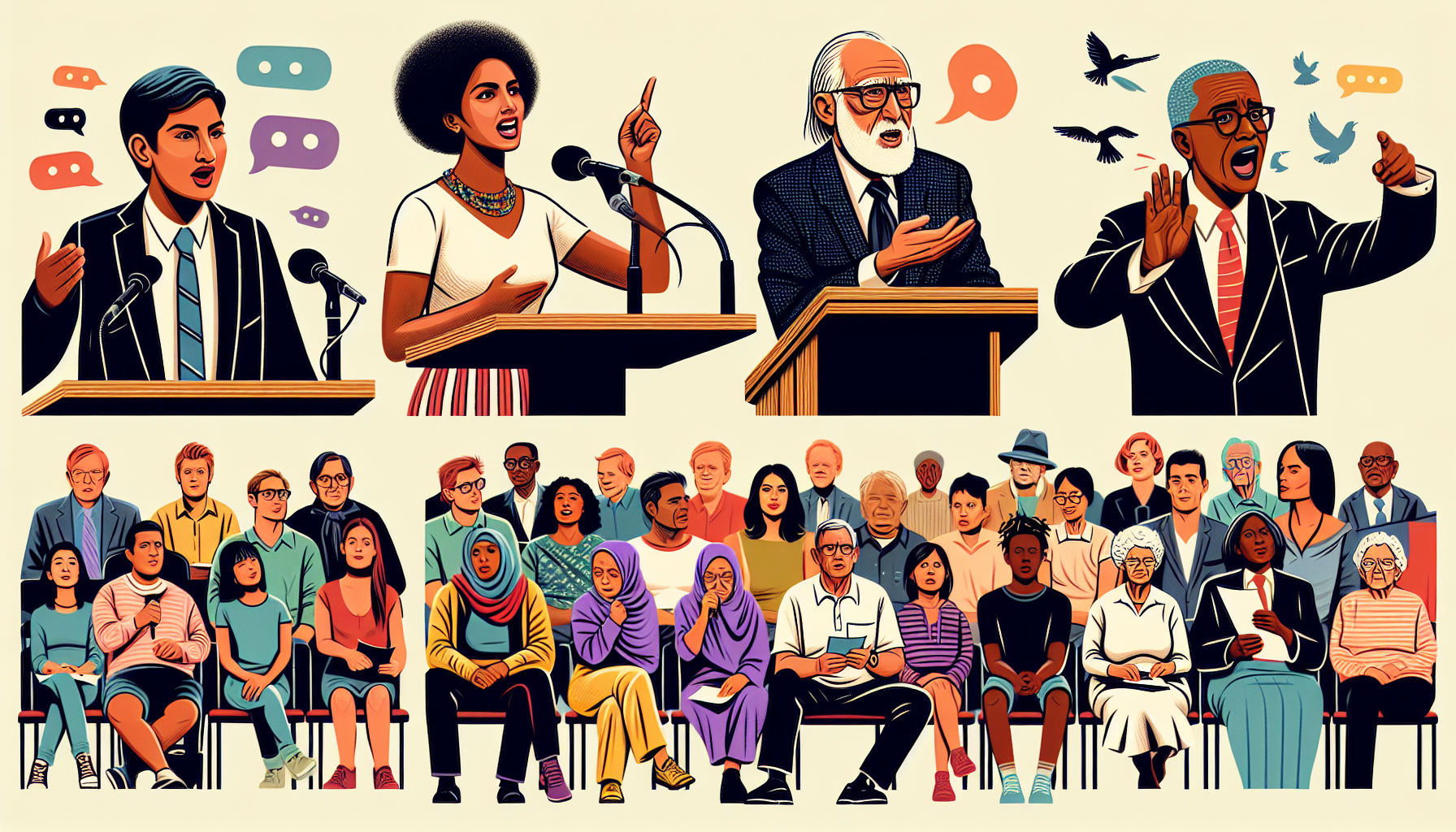Diversity and Inclusion at Wellstar: Building a Workforce for Everyone

Wellstar Health System has made it a priority to foster an inclusive environment where all employees feel valued and respected. The organization recognizes that a diverse workforce not only enhances employee satisfaction but also leads to improved patient outcomes. Research supports this notion, indicating that diverse teams are better equipped to understand and meet the needs of varied populations, which is crucial in a field where cultural competence can significantly affect care delivery. The D&I strategy at Wellstar includes comprehensive training programs on unconscious bias, cultural competency, and inclusive leadership. These initiatives educate employees about the importance of diversity and equip them with the skills necessary to contribute positively to an inclusive workplace.
Voices from Within: Employee Experiences
To gain insight into how Wellstar’s D&I efforts manifest in the workplace, we spoke with several diverse employees across different roles. One employee, Maria, a nurse with a Hispanic background, shared her experience: “I feel that my voice matters here. Wellstar’s commitment to diversity isn’t just a slogan; it is lived out every day in our team dynamics. It allows us to provide care that resonates with our patients’ cultural backgrounds.” Maria’s perspective highlights how a supportive workplace environment fosters a sense of ownership and pride among employees, ultimately translating into better patient care. Another employee, Jamal, a recent hire in the IT department, emphasized the importance of representation: “Coming from a Black background, I often felt out of place in tech roles. At Wellstar, I see leaders who look like me, and that inspires me to grow and contribute my best. It’s about creating a sense of belonging.” Jamal’s experience underscores the importance of visible role models in promoting diversity and inspiring underrepresented groups to excel in their careers.
The Importance of Representation in Healthcare
Representation in healthcare is not merely a matter of equity; it also directly impacts patient care. Studies indicate that patients are more likely to trust and communicate openly with healthcare providers from similar backgrounds. This trust can lead to better health outcomes, as patients are more likely to adhere to treatment plans and engage in preventative care. Wellstar actively recruits from diverse talent pools and partners with community organizations to ensure a wide range of candidates. This approach not only enriches the workplace culture but also enhances the organization’s ability to address the unique health needs of the communities it serves.
Building an Inclusive Culture
Creating an inclusive culture involves more than just hiring diverse talent; it requires ongoing commitment and action. Wellstar’s leadership has established employee resource groups (ERGs) that provide support and networking opportunities for underrepresented groups. These ERGs serve as platforms for employees to share experiences, advocate for change, and contribute to company policies that promote inclusion. Additionally, Wellstar encourages mentorship programs that connect new hires with seasoned professionals. These relationships foster professional development and help create an environment of support and growth, reinforcing the value of diversity at all organizational levels.
Wellstar Health System’s commitment to diversity and inclusion serves as a powerful model for other organizations in the healthcare sector and beyond. By prioritizing representation and fostering an inclusive culture, Wellstar enhances employee satisfaction and retention while significantly improving patient care.
Diversity and Inclusion Officer
Wellstar Health System, other major healthcare providers, and nonprofit organizations focused on health equity
Core Responsibilities
Develop and implement D&I strategies that align with organizational goals and healthcare practices.
Conduct assessments to measure the effectiveness of D&I initiatives and recommend adjustments based on findings.
Collaborate with HR to ensure recruitment practices attract a diverse talent pool.
Required Skills
Strong understanding of D&I concepts, especially in healthcare settings.
Excellent communication and interpersonal skills, with the ability to engage and influence stakeholders.
Experience in data analysis to track and report on diversity metrics.
Cultural Competence Trainer
Healthcare systems, educational institutions, and community health organizations
Core Responsibilities
Design and deliver training programs focused on cultural competence and unconscious bias for healthcare staff.
Facilitate workshops that help employees understand the impact of culture on patient care.
Assess training effectiveness through participant feedback and patient outcomes.
Required Skills
Background in education, social work, or healthcare with a focus on diversity training.
Ability to create engaging training materials and adapt content for various audiences.
Knowledge of healthcare disparities and best practices for providing culturally sensitive care.
Patient Advocate
Hospitals, community health centers, and nonprofit advocacy organizations
Core Responsibilities
Serve as a liaison between patients and healthcare providers to ensure understanding and access to care.
Advocate for the needs of diverse patient populations, addressing barriers related to race, ethnicity, and language.
Develop resources and materials that help patients navigate the healthcare system effectively.
Required Skills
Strong communication skills and cultural sensitivity to effectively engage with patients from diverse backgrounds.
Experience in social services or healthcare navigation.
Problem-solving abilities to address patient concerns and facilitate solutions.
Health Equity Analyst
Public health departments, research institutions, and healthcare organizations focused on improving health equity
Core Responsibilities
Analyze data related to health outcomes among different demographic groups to identify disparities.
Collaborate with community organizations to develop programs aimed at improving health equity.
Prepare reports and presentations to communicate findings to stakeholders and drive policy changes.
Required Skills
Proficiency in statistical analysis and health data interpretation.
Strong research skills and familiarity with public health frameworks.
Excellent written and verbal communication skills to convey complex data effectively.
Employee Resource Group (ERG) Coordinator
Large healthcare organizations, corporate sectors with robust D&I programs, and educational institutions
Core Responsibilities
Organize and facilitate activities for ERGs that support diverse employee groups within the organization.
Collaborate with HR and leadership to ensure ERG initiatives align with the overall D&I strategy.
Gather feedback from ERG members to inform organizational policies and practices.
Required Skills
Strong organizational and project management skills to coordinate events and initiatives.
Experience in community engagement or employee relations.
Passion for promoting diversity and inclusion within the workplace.


